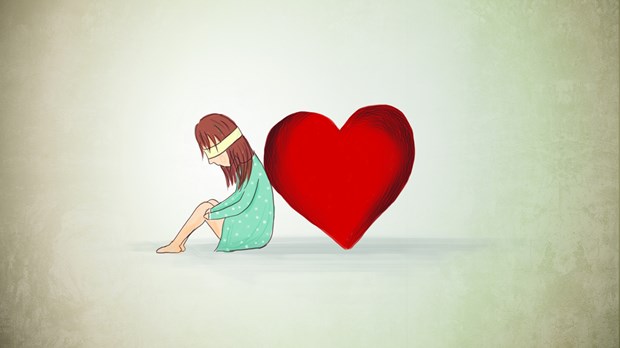
As we walked together on a Saturday morning, I heard my friends Sarah and Lucy describe living with a lot of shame.
“I feel bad that I don’t care more about my dog.”
“I feel bad when I buy pricey, thoughtful gifts.”
“I feel bad when I don’t buy pricey, thoughtful gifts.”
“When I serve in the church nursery, I feel bad that I don’t serve in the church nursery more often.”
Then Sarah confessed, “As I was driving to Charlotte with friends to hear Brené Brown speak, I felt horribly ashamed when I realized I forgot to buy my ticket.” The irony of that particular feeling of shame was not lost on us.
Exposing the Lie
See, Brown, a researcher and popular communicator, often speaks and writes about the wily power of shame in our lives. In a conversation with Oprah Winfrey, Brown defined shame as “the intensely painful feeling that we are unworthy of love and belonging.” Sometimes shame is triggered when we forget to buy a clever gift. At other times it can be tangled up with our failures or the abuse we’ve received at the hands of others—anything that causes us to feel unworthy. While there is also a proper and right sense of shame or guilt we may feel when we are convicted of sin in our lives, the kind of shame I’m talking about is something else entirely: It’s false shame . . . and it’s crushing us.
Scripture identifies that shaming voice as the Enemy, the Deceiver, Satan, or the Devil. By whatever name we call him, let’s recognize that the voice of this being always lies. This is the voice that hissed to Eve in the garden, “God might not really have your back. You should probably take things into your own hands. Save yourself” (paraphrase of Genesis 3:1–5).
It’s the voice that baited Jesus in the wilderness by saying, “Are you positive you’re God’s Son? Are you sure God’s got your back? Save yourself” (paraphrase of Luke 4:1–13).
It’s the voice Brown identifies that’s hissing in our ears today: You’re not worthy. You’re not enough. You’re not acceptable the way you are. Save yourself by trying harder. (Spoiler alert: That doesn’t work.)
In her book The Gifts of Imperfection, Brown writes, “A deep sense of love and belonging is an irreducible need of all women, men, and children. We are biologically, cognitively, physically, and spiritually wired to love, to be loved, and to belong.” That sounds, to my ear, like the theological anthropology I discover in Scripture. Not only do I agree with Brown that this need to be received is an irreducible need of all people, I’d argue that Brown’s identification of shame as the lie that’s choking the life out of us is the point at which the gospel of Jesus Christ becomes truly good news to many today.
What If . . . ?
While we may not always recognize it, a pressing “felt need” that marks so many of our lives—both Christians and non-Christians—is shame. Our language may look different; we may say we feel “bad” or “conflicted” or even “guilty,” but at the root of what we’re experiencing is shame when the voice of the Accuser berates us for not caring enough, not doing enough, not being enough.
But what if—in and through God’s love—we were enough?
About a dozen years ago I was being crushed by emotional suffering that was triggered by shame. My brother—a pastor with a PhD from Princeton Theological Seminary—had the audacity to suggest to me that Christ had come to deliver us not only from guilt but also from shame. Though it was the thing I most needed and longed for, it sounded outrageous. Had he lost all his orthodox marbles? Everyone who’s ever been to Vacation Bible School knows that Jesus came to forgive us for our sins—to declare us “not guilty.” The possibility, though, was irresistible. What if Jesus came to forgive our sins and to liberate us from much more?
What if Jesus really wanted us to know, in our very deepest places, that by virtue of his grace and redemption we are entirely and irrevocably accepted? That would be news worth sharing with our shame-slathered neighbors. And what if we were to appropriate the freedom of that salvation in every moment, not just as we pray the Sinner’s Prayer or as we breathe our last breath, but in every single moment in between? What if Jesus’ sacrifice that at last makes us acceptable to God means that we’re enough in the way Brennan Manning describes: “as you are and not as you should be”?
That would change everything.
And I believe it does.
You Are Deeply Loved
When the Liar tempted Jesus in the wilderness, he tried to tap into shame by asking, in essence, “Are you sure your Father has your back? Are you certain you’re loved and belong to God?” The clear subtext is, “Are you sure you’re good enough?”
And while no Gospel reporter narrates it in this way, I am convinced that in those moments Jesus returned—in his heart, in his mind, in his marrow—to the words he’d so recently heard waft down from heaven at his baptism: “This is my Son, whom I love; with him I am well pleased” (Matthew 3:17, NIV).
While those are decidedly Messianic words, religious code language signaling that Jesus was the one the Jews had been waiting for, they are also the words of love and belonging for which we all long.
They’re shame-busters.
When Jesus gave his friends a final round of admonition and instruction before his crucifixion, he said something that’s a little outrageous: “I have loved you even as the Father has loved me. Remain in my love” (John 15:9). Jesus is saying that the love his Father has for him is the love Jesus has for his followers.
A voice in me protests, Wait, wait, it can’t be! Those baptism words were spoken over the Messiah, God’s holy chosen one, and I’m just . . . me. Let’s not confuse the Savior with the saved!
But Jesus says it’s the same stuff.
In every moment we have the opportunity to agree with the one who lies, the voice insisting “You’re not enough,” or to tip our faces, our eyes and ears, toward the one who has offered us unalterable and irrevocable love and belonging through the life, death, and resurrection of Jesus Christ.
In identifying the two most important commandments, Jesus exhorted us to love God and to love others as we love ourselves. When we finally accept ourselves the way God has accepted us because of Christ’s sacrifice—as we are and not as we should be—our unconditional love for others will at last really be good news.
Read more articles that highlight writing by Christian women at ChristianityToday.com/Women
 Read These Next
Read These Next



 I Was RapedCould God heal my deep emotional scars?
I Was RapedCould God heal my deep emotional scars?
 We Skipped the Honeymoon PhaseWhat I’m learning about gratitude from marrying into motherhood
We Skipped the Honeymoon PhaseWhat I’m learning about gratitude from marrying into motherhood








 Homepage
Homepage
